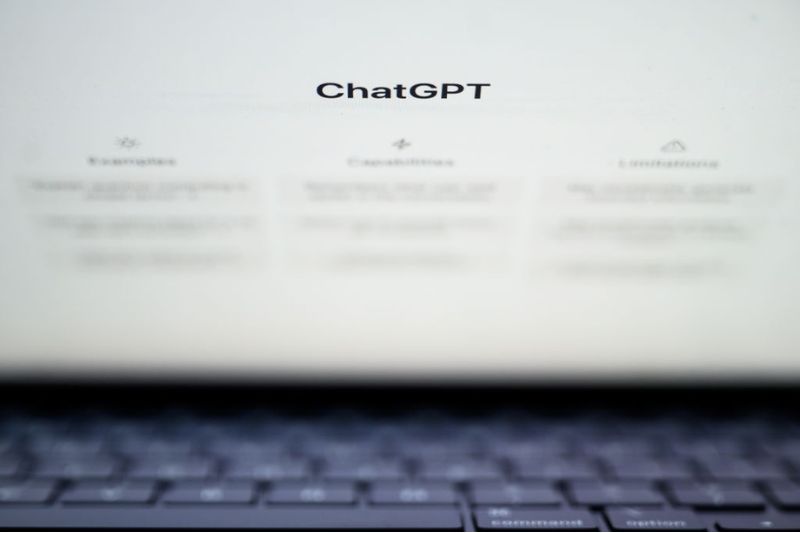Famously, Socrates never wrote anything down. Like other great thinkers of the time, he didn’t believe in letters. Once something is written, it’s fixed. He preferred the back and forth of dialogue, which is alive and changing. Words are dead on the page. Ironically, we know this because his student, Plato, wrote it down.

In the Phaedrus, Socrates argues that writing, ‘will create forgetfulness in the learners’ souls, because they will not use their memories’. Writing will not give students truth, ‘but only the semblance of truth; they will be hearers of many things and will have learned nothing’.
The same arguments against writing — that it ruins memory, that it’s not true — are being made against our latest technology: ChatGPT.
Socrates was right about memory and writing. We remember less if it’s written down (or if we can Google it). The truth of chatbots is being questioned, too — see the latest Google controversy.
When I first heard about ChatGPT, I groaned. I still listen to Phillip Adams on the radio and read hard copies of New Scientist. But AI tells me how to get to the soccer field for my daughter’s game. ‘Arrived,’ Siri tells me as I pull up next to the pitch. AI locates a pre-cancerous polyp in my colon. AI checks me out at the supermarket, calculates my marks, corrects the spelling mistakes as I type this article. AI is everywhere.
New technology has been creeping into the classroom for a very long time, and just as Socrates couldn’t stop writing, we can’t stop ChatGPT. It took Tiktok nine months to get 100 million users; it took ChatGPT just two months to sign up the same number of people.
'The vast majority of my first-year students don’t want to cheat; they want to learn. They were toddlers when the iPhone was launched, and they’ve grown up in a world of AI.'
When I taught a literature class of young women at Western Sydney University seven years ago, they were attached to their smartphones. Literally. They each had a ring that held their phone on their finger, so it never left the palm of their hand. Very few students had read the Robert Louis Stevenson book on the desk in front of them. Try as I might, I couldn’t get their attention. Then someone told me about Kahoot! If you can’t beat ’em, join ’em. From then on, I began every class with a Kahoot! quiz on the reading. Sure, it took time to create new quizzes each week — more on this later — but because students got to use the phones they were attached to, and because they received positive recognition for answering questions correctly, they began to read and discuss the book.
At a recent webinar hosted by GRAILE and attended by hundreds of academics around the world, I heard Professor Dragan Gasevic give his tacit support for the use of ChatGPT in higher education, but he did warn that it ‘will increase the teaching workload’. Already, I’ve spent countless unpaid hours researching and interacting with ChatGPT, trying to learn how I can make good use of it, and how I can ensure it’s not used for cheating.
When I asked ChatGPT if it helps students cheat, it responded:
‘It is possible that some students may use AI-assisted writing tools like ChatGPT to cheat on their assignments. However, it is important to note that academic dishonesty is a serious violation of school and university policies. . .’
Ha! That’s like the gambling industry telling you to ‘Gamble responsibly.’ The likelihood of getting caught using ChatGPT to write your essay? Near nil. Every answer produced is different and so traditional anti-cheating software doesn’t work.
When I asked ChatGPT what Socrates would make of it, the chatbot had a better answer: ‘it is possible that Socrates would view chatbots like ChatGPT as a source of information that is limited by its programming and data, and that it does not truly have the capacity for self-examination or the discovery of new knowledge. He may have seen the use of chatbots as a way of avoiding the difficult work of thinking and questioning, and as a threat to genuine understanding and wisdom.’
I’m not exactly sure how I’ll use ChatGPT in creative writing at the University of Queensland this semester. Perhaps I’ll ask it to write a story and we can critique the cliches it comes up with. It’s good at creative writing tips, terrible at creative writing. No doubt it will improve over time, or the next version will. My university, like most Australian unis, is still working on a policy for this new technology.
The vast majority of my first-year students don’t want to cheat; they want to learn. They were toddlers when the iPhone was launched, and they’ve grown up in a world of AI. This year my students and I will muddle through in the classroom and online, in dialogue and in writing. We’ll do the ‘difficult work of thinking and questioning’ how best to use — and not use — this latest technology.
Sarah Klenbort is a writer and sesional academic at Queensland University, where she teaches creative writing. She also teaches memoir at the Queensland Writers Centre. Sarah's work has appeared in Eureka Street, The Guardian, Best Australian Stories, Overland and other publications here and overseas.
Main image: The home page for the OpenAI 'ChatGPT' app displayed on a laptop screen. (Leon Neal/Getty Images)